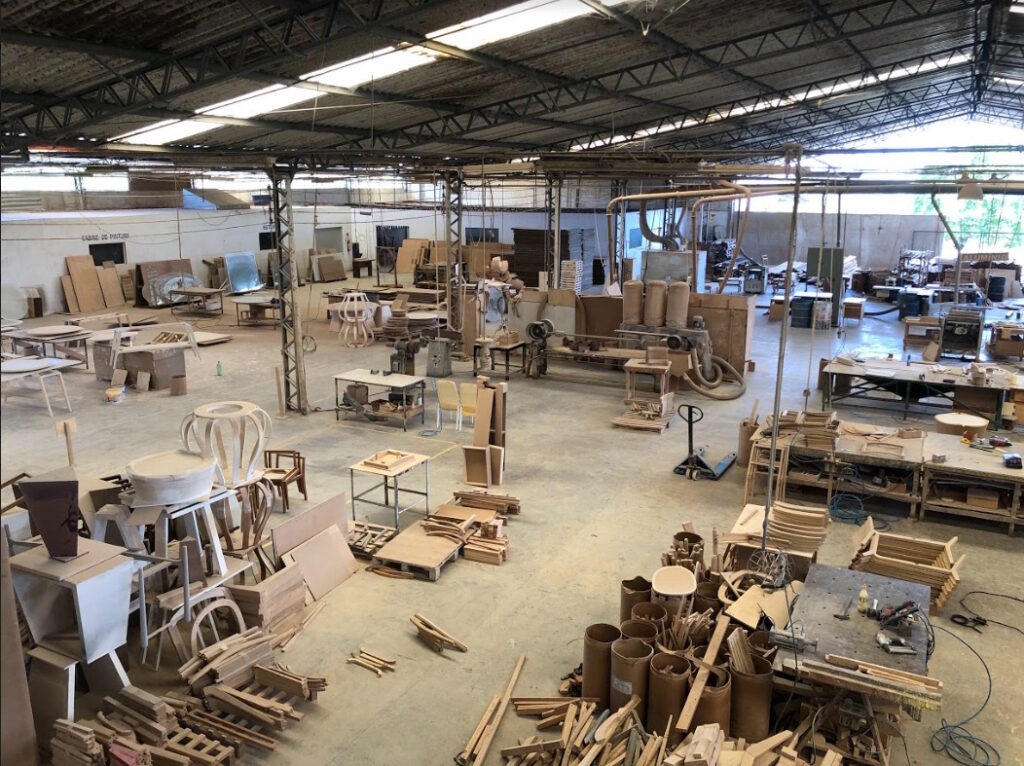Hub Sector

The stimuli for the integration and the modernization of a regional industrial ecosystem are more present in Ceará, since 2019, when an initiative to foster a Business Attraction Coordination, with a priority focus on the commerce and services sector, was idealized in the state. Just between the years 2021 and 2022, the activity has already generated about 144 million Reals (about 27 million dollars) in investments in the supported hubs and approximately four thousand new jobs. In 2022, the regions supported by the coordination include the Cariri Industrial Hub, the Pecém Industrial and Port Complex (CIPP), the Maracanaú Industrial Hub, which is in the Metropolitan Region of Fortaleza (RMF), as well as the Tabuleiro do Norte Multisectoral Hub and the Marco Furniture Hub.
The action was designed to be part of the 2019 Multi-Year Plan (PPA). The project is coordinated by the Executive Secretariat for Commerce, Services and Innovation (CSI) and the Secretariat for Economic Development and Labor (Sedet) of Ceará.
In the program, there is a team focused on active prospecting and supporting investors during the process of setting up new businesses in the state unit, one of the primary factors for economic growth. In addition, the initiative seeks to expand existing businesses in Ceará.
In this sense, the intention is to prioritize both the segments and their chains of activity, privileging their market trends in the areas in which they operate. In other words, in a general way, there is the search for private investments in Ceará, as well as the generation of high-quality employment opportunities.
"In summary, we proactively seek investment opportunities for Ceará, focusing on the Secretariat's three main challenges: to increase job generation, the average wage growth, and to grow the participation of Ceará's Gross Domestic Product (GDP) in the National GDP," points out Marcelo Santos, representative of the Trade, Services, and Innovation Investment Attraction sector.
To do this, possible opportunities for investors are identified, and from this, what is called the Map of State Attractiveness is presented. This file contains the competitive advantages that can be provided by Ceará, such as tax and economic incentives, infrastructure, qualified labor, and many other benefits.
The choice of these locations was based on three criteria. The first one is related to the number of companies. The second one takes into consideration the size of jobs, while the last one verifies the value of the salaries. All of these plus the total percentage of the region in which it operates, and the amount of support was defined based on the PPA.
Within these parameters, the critical points of each area are analyzed, as well as the needs of the industrial environment. Furthermore, an evaluation of the existence of infrastructure and the composition of the productive chain is added, so that, based on this, improvements can be articulated based on the demands found. The guidance is based on the view that each hub reflects the market needs of the region in which it operates.
"In relation to companies, we provide a greater possibility of success and a better 'cost x benefit' relationship, as we identify the differentials that can be offered by the State and the regions with the best possible ambience in relation to the company's business needs", evaluates Marcelo Santos about the benefits made possible by the initiative.
Considering the municipalities and regions to which they belong, Sedet elects as advantages the "creation of jobs, increase in revenues and acceleration of progress".
The advances occur because the initiative enabled the prospecting of investment opportunities and the generation of jobs in the State. In order to carry out these activities, investors and their respective projects are identified, which are then supported by the team responsible for the coordination, until the implementation of the new venture happens.
This is possible because there is a mapping of operational activities in the centers by filling out a strategic planning form. The document is previously prepared by the technical team, with the validation of the Executive Secretariat for Industry. It is from this activity that the action plans are built with the steps that will be performed during the project execution.
The projection for next year is positive, in Marcelo's assessment. The planning projects the intensification of prospecting for new businesses to generate investments and jobs. Another action that should be strengthened, implemented in the second half of 2022, is the training of municipal teams, as well as support so that they can proactively develop activities to attract business to cities.
During 2022, Sedet promoted, together with the Secretary of Cities, two workshops, one in Fortaleza, in September, and the second in Sobral, in October. There is also a third scheduled to be held in November, in the city of Juazeiro do Norte. The portfolio, a partner in the initiative, is developing a project focused on "Smart Cities".
"In 2023, we will continue the work to support the hubs, adding new hubs to the list of those that are already supported. We will map the current context of each hub through a strategic planning process, analyzing the mapped information, generating an action plan and supporting the respective actions", concludes Marcelo.


